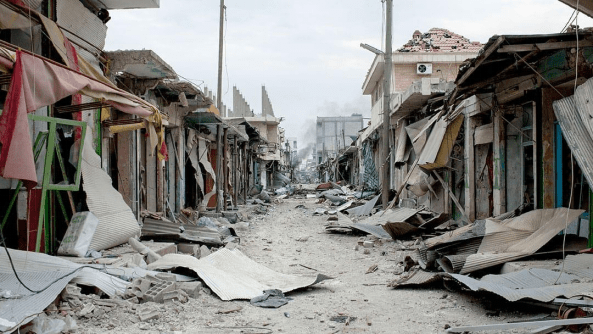
Bangladesh Faces Severe Islamist Uprising, $7 Billion in Economic Damage as Militants Seek to Overthrow Government and Impose Sharia Law
Fiona Nanna, ForeMedia News
5 minutes read. Updated 8:00AM GMT Fri, 26July, 2024
As of July 18, 2024, Bangladesh has been severed from the global stage amidst a violent upheaval led by Islamist militants with the audacious aim of toppling Prime Minister Sheikh Hasina and instituting a Sharia law regime. The violent insurrection, which has been described as the “Bangla Spring,” threatens to transform Bangladesh into a neo-Taliban state.
The Islamist insurgents, comprised of both local militants and jihadist factions, have orchestrated a nationwide spree of destruction targeting critical infrastructure and public services. Among their prime targets were the Bangladesh Television (BTV), major metro rail stations, elevated expressways’ toll plazas, police stations, government offices, and national data centers. This rampage resulted in a nationwide collapse of internet services, plunging the country into a communication blackout.
Public and private properties have been incinerated, with billions of dollars in damages reported. The violence reached a horrifying peak with the murder of several Bangladesh Police and Rapid Action Battalion (RAB) members. In a grotesque display of brutality, the bodies of slain law enforcement officers were hung from flyovers in Dhaka and other major cities, marking a stark escalation in the violence.
The attacks extended beyond urban centers to the Narsingdi Jail in eastern Bangladesh, where militants killed prison guards, seized weapons, and freed 834 convicted prisoners, including six members of Ansar Al Islam, a local affiliate of Al Qaeda. The attackers made off with 56 Chinese rifles, 19 shotguns, and over 8,500 rounds of ammunition. To date, over 770 prisoners remain unaccounted for, including seven members of Ansar Al Islam and two from Jamaatul Mujahedin Bangladesh (JMB).
There is a growing concern that these jihadists might attempt to cross into India, particularly as Ansar Al Islam reportedly maintains several clandestine camps in West Bengal. The interconnectedness of these militant groups with Al Qaeda and the Islamic State poses a severe regional threat.
In the lead-up to these attacks, various militant organizations, including Ansar Al Islam, JMB, and Harkat-ul-Jihad (HuJI), had been preparing for this extensive assault for months. Despite media reports highlighting these threats, prison authorities took insufficient measures to prevent the imminent violence.
The chaos has been exacerbated by a coordinated disinformation campaign. Exploiting the internet blackout, activists connected with Al Qaeda-linked parties such as the Bangladesh Nationalist Party (BNP) and Jamaat-e-Islami (JeI), as well as international jihadist groups, spread misleading information across social media platforms. This misinformation campaign included doctored images and falsified news reports, aimed at creating confusion and fear among the Bangladeshi diaspora and the global community.
In a disturbing twist, at least 350 well-trained terrorists entered Bangladesh during the Eid Ul Adha holiday. These operatives, trained by the Pakistani spy agency Inter-Services Intelligence (ISI) in Pakistan-occupied Kashmir, are implicated in the attacks. Many of these terrorists are associated with the Stranded Pakistani Biharis in Bangladesh, receiving specialized commando training and explosive-making skills. Notably, some of these operatives are designated suicide attackers.
Further compounding the crisis, high-ranking members of the BNP, under the direction of Khaleda Zia’s press secretary, have been implicated in funding these terrorist activities. Donations ranging from BDT 1.5 million to 50 million have been channeled into a “special fund” for destabilizing the government and removing Prime Minister Sheikh Hasina. The funds have been used to support terrorist operations and provide temporary shelter for trained militants.
Meanwhile, as the violence unfolded, members of the outlawed Hizbut Tahrir and BNP have ramped up their social media propaganda, further fueling unrest. This disinformation campaign has reached international cities such as London and New York, where BNP members have been actively spreading false narratives.
In response to the escalating crisis, Bangladesh’s law enforcement agencies and the army have been mobilized to combat the insurgent threat and restore order. However, the Islamist nexus has adapted by deploying cyber terrorists to disseminate harmful propaganda and misleading content online.
The ongoing conflict represents a dire situation for Bangladesh, with significant economic repercussions estimated at $7 billion. As the country grapples with this unprecedented crisis, the international community must remain vigilant and informed about the evolving situation.
For more information on the crisis in Bangladesh, visit Bangladesh Crisis Overview and International Response to Bangladeshi Violence.

